Churchill and Orwell: The Fight for Freedom
By: Thomas E. Ricks
-
Rs 1,015.75
- Rs 1,195.00
- 15%
You save Rs 179.25.
Due to constant currency fluctuation, prices are subject to change with or without notice.
Both George Orwell and Winston Churchill came close to death in the mid-1930's--Orwell shot in the neck in a trench line in the Spanish Civil War, and Churchill struck by a car in New York City. If they'd died then, history would scarcely remember them. At the time, Churchill was a politician on the outs, his loyalty to his class and party suspect. Orwell was a mildly successful novelist, to put it generously. No one would have predicted that by the end of the 20th century they would be considered two of the most important people in British history for having the vision and courage to campaign tirelessly, in words and in deeds, against the totalitarian threat from both the left and the right. In a crucial moment, they responded first by seeking the facts of the matter, seeing through the lies and obfuscations, and then they acted on their beliefs. Together, to an extent not sufficiently appreciated, they kept the West's compass set toward freedom as its due north.
It's not easy to recall now how lonely a position both men once occupied. By the late 1930's, democracy was discredited in many circles, and authoritarian rulers were everywhere in the ascent. There were some who decried the scourge of communism, but saw in Hitler and Mussolini "men we could do business with," if not in fact saviors. And there were others who saw the Nazi and fascist threat as malign, but tended to view communism as the path to salvation. Churchill and Orwell, on the other hand, had the foresight to see clearly that the issue was human freedom--that whatever its coloration, a government that denied its people basic freedoms was a totalitarian menace and had to be resisted.
Both George Orwell and Winston Churchill came close to death in the mid-1930's--Orwell shot in the neck in a trench line in the Spanish Civil War, and Churchill struck by a car in New York City. If they'd died then, history would scarcely remember them. At the time, Churchill was a politician on the outs, his loyalty to his class and party suspect. Orwell was a mildly successful novelist, to put it generously. No one would have predicted that by the end of the 20th century they would be considered two of the most important people in British history for having the vision and courage to campaign tirelessly, in words and in deeds, against the totalitarian threat from both the left and the right. In a crucial moment, they responded first by seeking the facts of the matter, seeing through the lies and obfuscations, and then they acted on their beliefs. Together, to an extent not sufficiently appreciated, they kept the West's compass set toward freedom as its due north.
It's not easy to recall now how lonely a position both men once occupied. By the late 1930's, democracy was discredited in many circles, and authoritarian rulers were everywhere in the ascent. There were some who decried the scourge of communism, but saw in Hitler and Mussolini "men we could do business with," if not in fact saviors. And there were others who saw the Nazi and fascist threat as malign, but tended to view communism as the path to salvation. Churchill and Orwell, on the other hand, had the foresight to see clearly that the issue was human freedom--that whatever its coloration, a government that denied its people basic freedoms was a totalitarian menace and had to be resisted.
Churchill and Orwell: The Fight for Freedom
By: Thomas E. Ricks
Rs 1,015.75 Rs 1,195.00 Ex Tax :Rs 1,015.75
The Gamble - General David Petraeus and the American Military Adventure in Iraq, 2006-2008
By: Thomas E. Ricks
Rs 425.00 Rs 500.00 Ex Tax :Rs 425.00
Churchill and Orwell - The Fight for Freedom
By: Thomas E. Ricks
Rs 1,695.75 Rs 1,995.00 Ex Tax :Rs 1,695.75
The Gamble : General Petraeus and the Untold Story of the American Surge in Iraq, 2006-2008
By: Thomas E. Ricks
Rs 7,641.50 Rs 8,990.00 Ex Tax :Rs 7,641.50
Zubin Mehta: A Musical Journey (An Authorized Biography)
By: VOID - Bakhtiar K. Dadabhoy
Rs 892.50 Rs 1,050.00 Ex Tax :Rs 892.50
Guns Germs And Steel A Short History Of Everybody For The Last 13000 Years
By: Jared Diamond
Rs 2,965.50 Rs 3,295.00 Ex Tax :Rs 2,965.50
The Power of Habit Why We Do What We Do and How to Change
By: Charles Duhigg
Rs 2,695.50 Rs 2,995.00 Ex Tax :Rs 2,695.50
The Daily Stoic: 366 Meditations on Wisdom
By: Ryan Holiday
Rs 2,965.50 Rs 3,295.00 Ex Tax :Rs 2,965.50
Malala The Girl Who Stood Up for Education and Changed the World
By: Malala Yousafzai
Rs 397.50 Rs 795.00 Ex Tax :Rs 397.50
Maybe You Should Talk to Someone - The Heartfelt, Funny Memoir by a New York Times Bestselling Therapist
By: Lori Gottlieb
Rs 2,515.50 Rs 2,795.00 Ex Tax :Rs 2,515.50
Manning Up: How the Rise of Women Has Turned Men into Boys
By: Kay Hymowitz
Rs 845.75 Rs 995.00 Ex Tax :Rs 845.75
The Perfect Gentleman: A Muslim Boy Meets the West - [HB]
By: Imran Ahmad
Rs 1,447.50 Rs 2,895.00 Ex Tax :Rs 1,447.50
Guns Germs And Steel A Short History Of Everybody For The Last 13000 Years
By: Jared Diamond
Rs 2,965.50 Rs 3,295.00 Ex Tax :Rs 2,965.50
The Power of Habit Why We Do What We Do and How to Change
By: Charles Duhigg
Rs 2,695.50 Rs 2,995.00 Ex Tax :Rs 2,695.50
The Daily Stoic: 366 Meditations on Wisdom
By: Ryan Holiday
Rs 2,965.50 Rs 3,295.00 Ex Tax :Rs 2,965.50
Malala The Girl Who Stood Up for Education and Changed the World
By: Malala Yousafzai
Rs 397.50 Rs 795.00 Ex Tax :Rs 397.50
Maybe You Should Talk to Someone - The Heartfelt, Funny Memoir by a New York Times Bestselling Therapist
By: Lori Gottlieb
Rs 2,515.50 Rs 2,795.00 Ex Tax :Rs 2,515.50
Fifty Things That Made the Modern Economy
By: Tim Harford
Rs 1,247.50 Rs 2,495.00 Ex Tax :Rs 1,247.50
About Love: Anton Chekhov (Little Clothbound Classics)
By: Anton Chekhov
Rs 2,245.50 Rs 2,495.00 Ex Tax :Rs 2,245.50
Glutenfree Food for Kids More than 100 quick and easy recipes for coeliac children
By: Louise Blair
Rs 1,232.50 Rs 1,450.00 Ex Tax :Rs 1,232.50
Ethnic Conflict and Civic Life: Hindus and Muslims in India
By: Ashutosh Varshney
Rs 560.00 Rs 1,400.00 Ex Tax :Rs 560.00
A Woman of Influence - The Spectacular Rise of Alice Spencer in Tudor England
By: Vanessa Wilkie
Rs 3,235.50 Rs 3,595.00 Ex Tax :Rs 3,235.50
Zubin Mehta: A Musical Journey (An Authorized Biography)
By: VOID - Bakhtiar K. Dadabhoy
Rs 892.50 Rs 1,050.00 Ex Tax :Rs 892.50
Churchill and Orwell: The Fight for Freedom
By: Thomas E. Ricks
Rs 1,015.75 Rs 1,195.00 Ex Tax :Rs 1,015.75
The Gamble - General David Petraeus and the American Military Adventure in Iraq, 2006-2008
By: Thomas E. Ricks
Rs 425.00 Rs 500.00 Ex Tax :Rs 425.00
Churchill and Orwell - The Fight for Freedom
By: Thomas E. Ricks
Rs 1,695.75 Rs 1,995.00 Ex Tax :Rs 1,695.75
The Gamble : General Petraeus and the Untold Story of the American Surge in Iraq, 2006-2008
By: Thomas E. Ricks
Rs 7,641.50 Rs 8,990.00 Ex Tax :Rs 7,641.50
Guns Germs And Steel A Short History Of Everybody For The Last 13000 Years
By: Jared Diamond
Rs 2,965.50 Rs 3,295.00 Ex Tax :Rs 2,965.50
The Power of Habit Why We Do What We Do and How to Change
By: Charles Duhigg
Rs 2,695.50 Rs 2,995.00 Ex Tax :Rs 2,695.50
The Daily Stoic: 366 Meditations on Wisdom
By: Ryan Holiday
Rs 2,965.50 Rs 3,295.00 Ex Tax :Rs 2,965.50
Malala The Girl Who Stood Up for Education and Changed the World
By: Malala Yousafzai
Rs 397.50 Rs 795.00 Ex Tax :Rs 397.50
Maybe You Should Talk to Someone - The Heartfelt, Funny Memoir by a New York Times Bestselling Therapist
By: Lori Gottlieb
Rs 2,515.50 Rs 2,795.00 Ex Tax :Rs 2,515.50












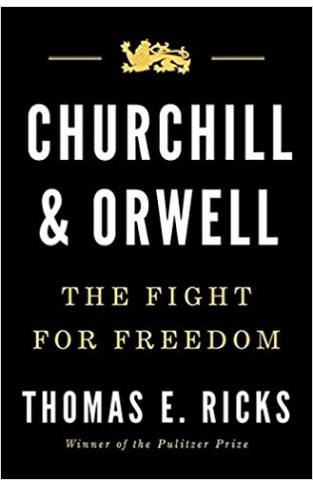
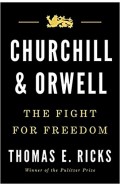
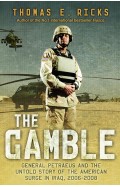
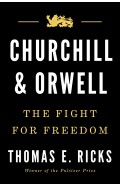

-120x187.jpg?q6)





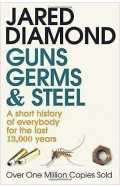
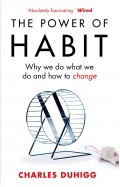
-120x187.jpg?q6)
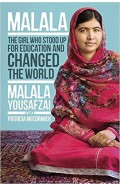
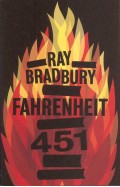
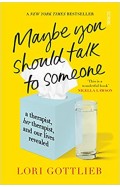
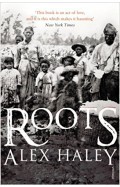



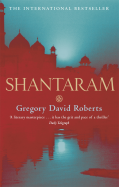
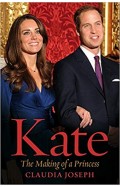
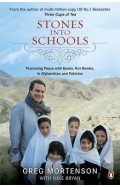
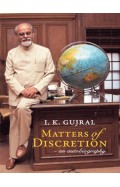
![The Perfect Gentleman: A Muslim Boy Meets the West - [HB]](https://www.libertybooks.com/image/cache/catalog/the-perfect-gentleman-a-muslim-boy-meets-the-west-[hb]-9781455508495-120x187.jpg?q6)
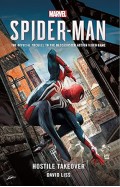
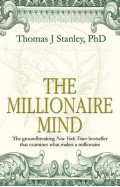
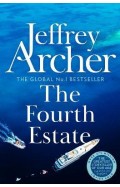
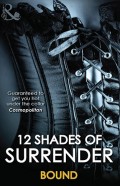
-120x187.jpg?q6)
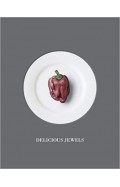
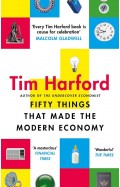
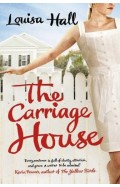

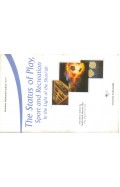


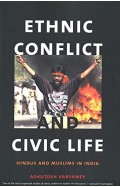
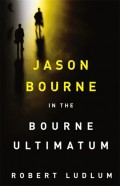
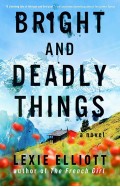
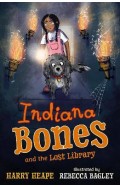



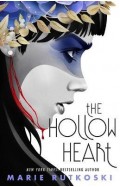
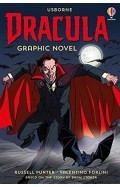
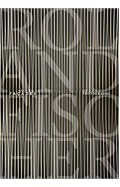

-120x187.jpg?q6)